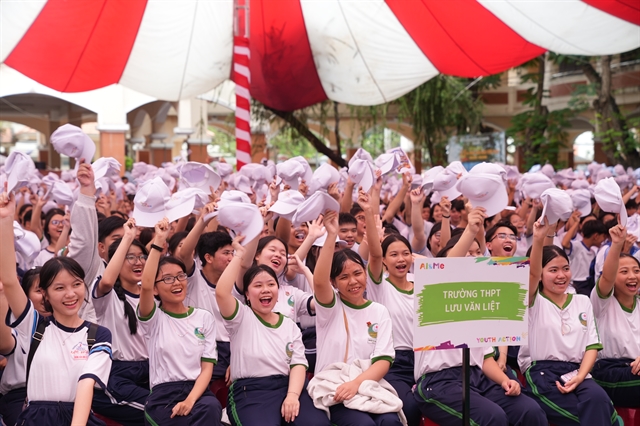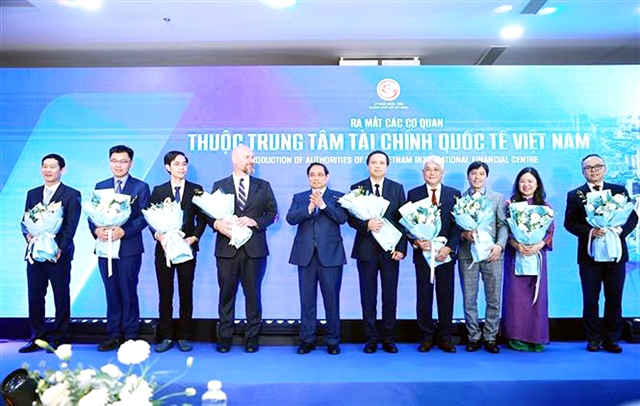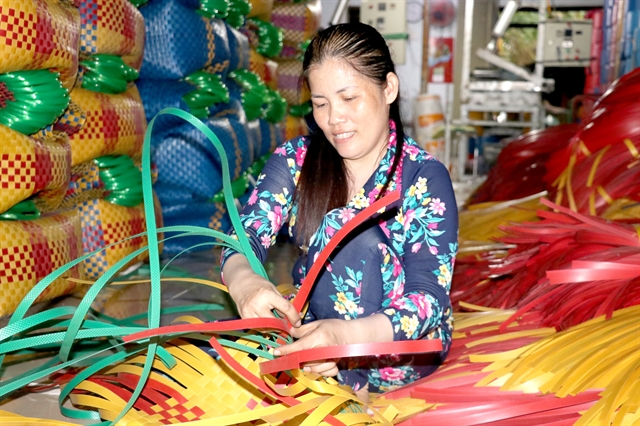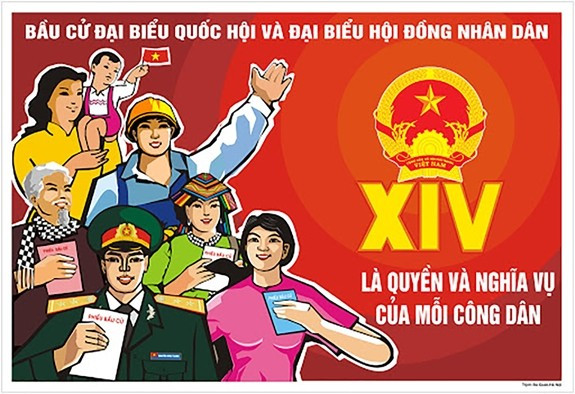 Society
Society

The Cửu Long (Mekong) Delta province of Long An plans to provide 328,000 labourers in rural areas with vocational training over the next 10 years, according to its People’s Committee.

|
| A basket-making establishment provides jobs for dozens of local labourers in Cần Đước District’s Phước Đông Commune in Long An Province. — VNA/VNS Photo Đức Hạnh |
LONG AN — The Cửu Long (Mekong) Delta province of Long An plans to provide 328,000 labourers in rural areas with vocational training over the next 10 years, according to its People’s Committee.
In 2021-25, the province will provide vocational training for 160,000 labourers, and at least 80 per cent of the 160,000 trainees are expected to have new jobs or continue doing their current jobs but have higher productivity and income.
In 2026 – 30, the province will provide vocational training for 168,000 labourers, and at least 85 per cent of the 168,000 trainees will have new jobs or continue their current jobs but have higher productivity and income.
Speaking at a seminar held in Long An on Monday, Phạm Tấn Hòa, deputy chairman of the People’s Committee, said relevant departments, agencies and localities should pay more attention to creating jobs for trainees after they learn vocational skills.
The province should also provide training in non-agriculture sectors so that workers can have opportunities to work in the industrial, handicraft and services sectors, and switch to new jobs, he said.
Vocational curricula for labourers should also be updated to provide new knowledge in science and technology and should be suited to the current labour market. This will help trained labourers find work at home and abroad, he said.
In the last 10 years of providing training for labourers in rural areas, nearly 230,000 labourers took vocational courses, 3 per cent over the province’s target set for the period, according to the People’s Committee.
Of the number, more than 60,000 received free training at a total cost of VNĐ55 billion (US$2.38 million) and 87 per cent of them found jobs.
As many as 859 poor households escaped poverty after they were provided vocational training and jobs in the past 11 years, accounting for 18.7 per cent of the province’s poor households that participated in vocational training.
Trained labourers in rural areas have been able to do their own job, use applied advanced techniques in agricultural production, or work in a plant, production establishment or co-operative.
In Cần Đước District’s Cần Đước Town, local authorities opened many cooking courses for labourers as the town is well known for its cooking services.
Nguyễn Thị Vốn in Cần Đước Town took part in a cooking course in 2018 and opened a vegetarian eatery.
“After participating in the course, I rented a place to open the eatery and my life is better,” she said.
In Tân Trụ District, where dragon fruit is one of the key agricultural products, local authorities organised courses on growing dragon fruit under Vietnamese good agricultural practices (VietGAP) standards for farmers. VNS




